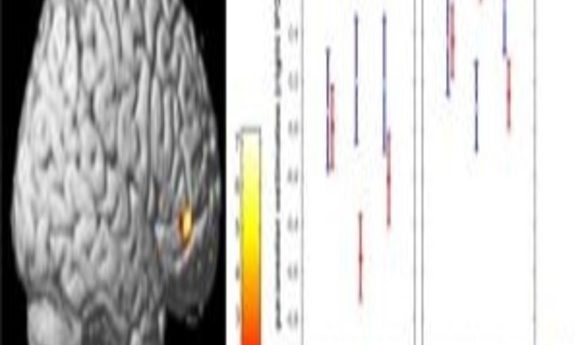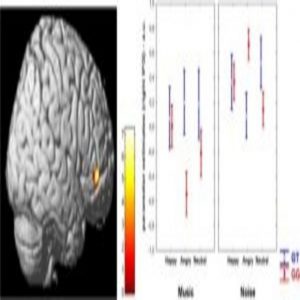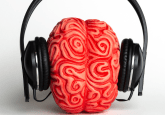Genes, music and the brain

Researchers have pinpointed a gene that may determine your behavior when listening to music.

The GG and GT alleles for DRD2 dopamine receptor show differing responses to music and noise (1).
Do you have a musical playlist to promote productive work? For some, a favorite concerto can help conquer an unanswered email folder, whereas others need silence when ticking off their to-do lists. Now, research published in Neuroscience has demonstrated that genetically determined functionality of neurotransmitters can affect behavior and brain physiology when listening to music (1).
“There has been some evidence before about the relationship between dopamine transmission and musical emotion, such as those chills that you get when you listen to your favorite song,” said corresponding author Elvira Brattico. “However, these are on a selective sample of individuals based on responses and only looking at neuronal imaging. We decided to widen the sample and also involve genetics.”
The team recruited 38 volunteers who carried either the GG or GT allele of the dopamine D2 receptor gene (DRD2), where the GG allele is known to result in lower dopamine levels in the brain. “There are many dopamine receptor genes and several dopamine receptors as well, but we chose this gene because both the receptors and the related genes are well studied, and we know that these functional polymorphisms appear to be related to the phenomena we are interested in,” stated Brattico.
The researchers presented their volunteers with images of angry, happy, or neutral faces and asked them to identify the gender of the person in the picture while recording their responses with functional magnetic resonance imaging (fMRI). During this task they listened either to “music” or “noise,” with participants self-assessing their moods before and after the task.
The subjects with GG alleles showed an improved mood after listening to music, whereas mood deteriorated in volunteers with GT alleles after hearing noise. The fMRI data showed that when listening to music, people with GG alleles had decreased activity in the prefrontal area, which is associated with emotional responses. GT individuals showed decreased activity in the striatum—a brain region associated with reward responses—when listening to noise.
“This study allowed the identification of a relationship between genes and phenotypes in response to music, specifically looking at mood” concluded Brattico. “Our next step forward is to actually take a step backwards and make linear correlations within individuals freely listening to music and their behavior ratings, to more closely understand the origin of the behavior.”
Brattico believes that music may one day be used therapeutically to alter mood and behavioral responses, and her team is interested in exploring whether or not people can become addicted to music, since the striatal response they observed has a known role in rewarding addictive behaviors.





